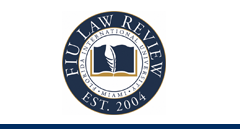Alternate Title
Zero to Hero: The Unavailability of Bivens and Why Congress Should Intervene
Keywords
Bivens, § 1983, civil rights, federal agents, implied cause of action, right to redress, Supreme Court, Congress
Abstract
n Bivens, the Supreme Court held that although 42 U.S.C. § 1983 is silent as to its application to federal agents, the plaintiff had an implied cause of action against federal agents for violation of his constitutional rights. Since this decision, the Court has heavily narrowed the implied Bivenscause of action and punted the decision to Congress to codify a cause of action against federal agents. As the law currently stands, plaintiffs must overcome a confusing framework that conflates constitutional merits with whether a cause of action exists, affords extreme deference to executive decisions, and is presumptively unavailable. In June of 2020, federal agents were deployed to cities throughout the United States to end recurring protests against police brutality and systemic racism. Federal agents used excessive force to remove protestors, resulting in several lawsuits. However, because of Bivens’narrow application, a remedy is unavailable. In contrast, the plaintiffs could sue if officers acting under color of state or local law had used excessive force, using § 1983 as a vehicle to remedy their injuries. Whether an agent acts under color of state or federal law should not be the determining factor in deciding whether a remedy is available. This comment will discuss the flaws in the current Bivensframework, recognizing why a codified Bivensis necessary. Further, this comment will address how a codified Bivenswould look, analyzing: who could be sued, for what rights a codified Bivenswould apply, and how a codified Bivenswould interact with other areas of civil rights law.
Recommended Citation
Amanda Pulido, Zero to Hero: The Unavailability of Bivens and Why Congress Should Intervene, 16 FIU L. Rev. 807 (2022), https://doi.org/10.25148/lawrev.16.3.11.





